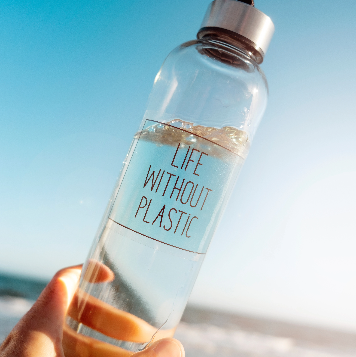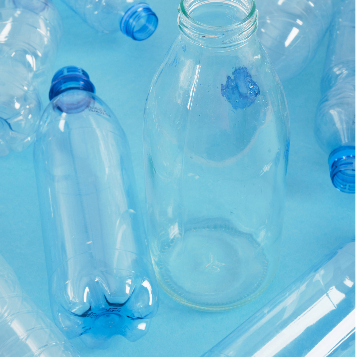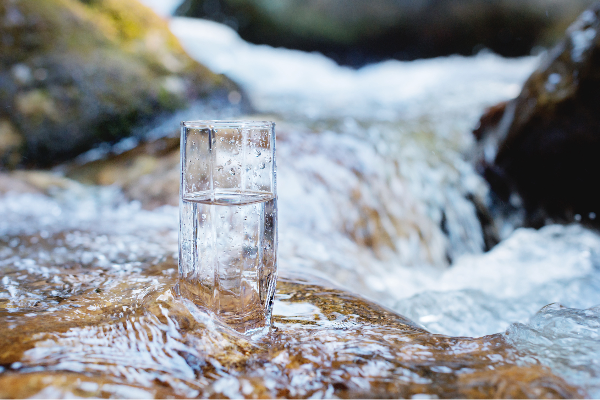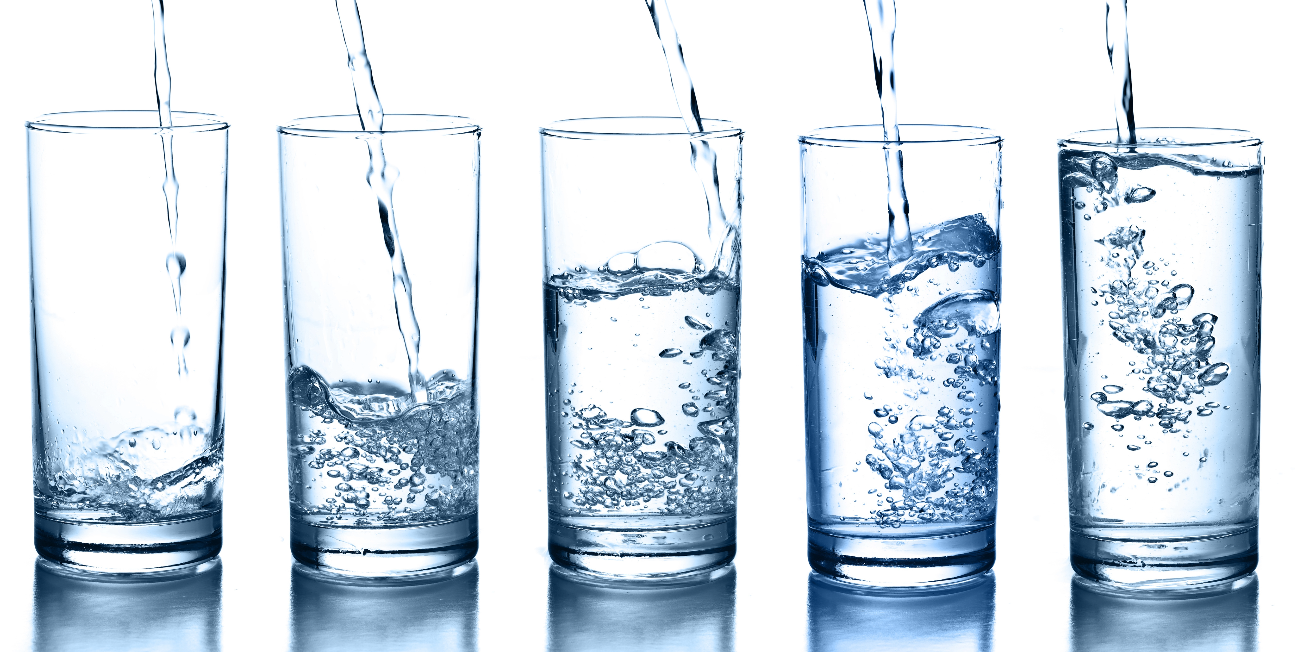Water, the cornerstone of life, holds the power to shape our health and our planet. In this comprehensive guide, we'll delve into the significance of water consumption, explore the distinctions between spring water and purified water, weigh the ecological impact of plastic versus glass bottled water, and offer recommendations for water and shower filters. Additionally, we'll unravel the nuances between alkaline, purified, spring, and filtered water, and make a compelling case for choosing spring water over purified. Before we dive into this exploration, let's first understand the vital importance of water in our lives.
“Embrace the essence of life in every sip of spring water, a pure elixir from nature's heart. Let positivity flow as freely as the water, infusing every drop with a vibrant charge for a healthier, more conscious you.”
Embark on a Journey of Wellness with LifeWell Coach
Before we dive into the world of hydration, consider this: the choices we make extend beyond what we drink. At LifeWell Coach, we believe in a holistic approach to well-being, where every decision, from the water we consume to the thoughts we nurture, plays a role in our vitality. Our dedicated coaches are here to guide you on a transformative journey towards a healthier, more balanced life. Discover the potential for true wellness with LifeWell Coach services.


The Vitality of Water: A Pinnacle of Wellness
Water is the essence of life, an elixir that sustains our very existence. It fuels our bodies, aids in digestion, regulates temperature, and removes waste. The importance of staying adequately hydrated cannot be overstated. Without water, our bodies falter, leading to fatigue, cognitive decline, and a compromised immune system.
Recommended Daily Amount:
The recommended daily water intake varies depending on factors such as age, gender, climate, and physical activity level. As a general guideline, it is advised to aim for around 8-10 cups (about 2-2.5 liters) of water per day. However, individual hydration needs may differ, and it's crucial to listen to your body's signals for thirst.
Hydration Beyond the Glass: Fruits and Vegetables
While water is the most direct source of hydration, it's not the only one. Many fruits and vegetables are rich in water content, offering a delicious and nutritious way to supplement your daily fluid intake.
Here are some hydrating fruits and vegetables:
Cucumbers: Comprising about 96% water, cucumbers are an excellent hydrating option. They make a refreshing addition to salads and can be eaten on their own as a hydrating snack.
Watermelon: As the name suggests, watermelon is packed with water (about 92%). It's a tasty way to quench your thirst and boost hydration.
Strawberries: These juicy red berries are approximately 91% water. Snacking on strawberries can be a delightful way to increase your fluid intake.
Lettuce: Most leafy greens, including lettuce, have high water content (around 95%). Incorporating a variety of greens into your meals can contribute to your hydration goals.
Celery: This crunchy vegetable is composed of about 95% water. It's a low-calorie, hydrating snack option.
Oranges: Juicy and refreshing, oranges are about 87% water. They're not only hydrating but also rich in vitamin C.
Remember, these fruits and vegetables are not only hydrating but also offer a range of essential nutrients, making them a valuable addition to a balanced diet.
Benefits of Water for Well-being and Body Systems
Water is essential for overall well-being and plays a crucial role in various bodily functions.
List of Benefits of Water for Well-being and Body Systems:
1. Hydration and Cellular Function
- Maintains proper hydration levels, ensuring optimal function of cells and tissues.
2. Digestive System
- Facilitates digestion by aiding in the breakdown of food and absorption of nutrients.
- Prevents constipation by softening stools and promoting regular bowel movements.
3. Circulatory System
- Helps transport oxygen and nutrients to cells through the bloodstream.
- Maintains blood volume and pressure levels, supporting overall cardiovascular health.
4. Temperature Regulation
- Regulates body temperature through perspiration and evaporation.
5. Joint Lubrication
- Acts as a natural lubricant for joints, reducing friction and supporting mobility.
6. Detoxification
- Assists the kidneys and liver in flushing out waste products and toxins from the body.
7. Cognitive Function
- Supports mental clarity, focus, and cognitive performance by ensuring proper hydration of brain cells.
8. Weight Management
- Aids in weight loss by promoting a feeling of fullness, reducing the likelihood of overeating.
9. Skin Health
- Hydrates the skin, improving elasticity and reducing the appearance of wrinkles.
10. Immune System Support
- Helps transport immune cells throughout the body, supporting the body's defense against pathogens.
11. Muscular Function
- Enables proper muscle contraction and coordination, essential for physical activity.
12. Metabolic Function
- Supports metabolic processes, including the breakdown of nutrients for energy production.
13. pH Balance
- Helps maintain the body's acid-base balance, crucial for overall physiological stability.
14. Respiratory System
- Supports mucus production in the respiratory tract, aiding in the removal of irritants and pathogens.
15. Liver Function
- Assists the liver in metabolizing and excreting waste products from the body.
16. Heart Health
- Helps maintain blood viscosity and prevents the formation of clots, supporting heart function.
17. Endocrine System
- Supports hormonal balance by aiding in the transport of hormones through the bloodstream.
18. Nervous System
- Ensures proper electrical conductivity in nerve cells, facilitating rapid communication.
19. Mood Regulation
- Adequate hydration is linked to improved mood and reduced risk of mood disorders.
20. Kidney Function
- Supports kidney health by helping to filter waste products from the blood.
Remember, maintaining proper hydration is essential for overall health and well-being. It's crucial to listen to your body's signals for thirst and to make a conscious effort to stay adequately hydrated throughout the day.
In the grand tapestry of sustainability, the choice of a water bottle may seem small, but every decision counts. By embracing glass over plastic, you're not only enhancing your own well-being but also contributing to a healthier planet. It's a simple yet powerful step towards a more sustainable and conscious way of living. Cheers to a future where every drop of water is cherished in a vessel as pure as the liquid it holds.
Spring Water vs. Purified Water: A Clear Distinction
Spring Water
Source of Origin: Spring water is sourced directly from natural springs, where it naturally flows from underground aquifers.
Mineral Content: Rich in naturally occurring minerals like calcium, magnesium, and potassium, spring water boasts a distinct taste.
Purity Level: Generally clean and free from contaminants, although periodic testing and treatment are recommended.

Purified Water
Source of Origin: Purified water undergoes rigorous filtration processes like distillation, reverse osmosis, or advanced filtration methods to remove impurities.
Mineral Content: Through purification, minerals are often removed, resulting in a neutral taste.
Purity Level: Purified water tends to have higher purity levels due to comprehensive filtration.
Bottled Water: Plastic vs. Glass
Glass Bottled Water
Sustainability: Infinitely recyclable, glass has minimal environmental impact compared to plastic.
Preservation of Purity: Glass does not leach harmful chemicals into the water, preserving its natural quality.
Taste and Quality: Water stored in glass tends to retain its natural taste and freshness without interference.
Plastic Bottled Water
Environmental Impact: Contributes to pollution and takes hundreds of years to decompose, if at all.
Potential Contamination: Over time, plastic bottles can release harmful chemicals into the water, especially when exposed to heat or sunlight.
Sustainability Concerns: The production and disposal of plastic bottles have far-reaching environmental consequences.
Decoding Water Types: Alkaline, Purified, Spring, and Filtered
Alkaline Water
pH Level: Higher pH (8-9.5) than regular tap water, making it less acidic.
Benefits: Advocates claim potential health benefits, including neutralizing acid in the body, providing antioxidants, and improving hydration.
Source: This can be naturally occurring or artificially created using a water ionizer machine.
Purified Water
Purified water undergoes filtration processes to remove impurities, contaminants, and minerals. It is generally considered to be of high purity.
Spring Water
Sourced directly from natural springs, spring water contains naturally occurring minerals, contributing to its taste.
Filtered Water
Filtered water goes through a filtration system to remove impurities and contaminants. Its purity depends on the type of filter used.
Embracing Spring Water: Nature's Purest
Elixir In the realm of hydration, the choice between spring water and purified water can be significant. While both offer essential hydration, there's a compelling case for embracing the natural bounty of spring water.
A Symphony of Minerals
Spring water is a natural source, flowing from underground aquifers, enriched with an orchestra of minerals. These minerals, including calcium, magnesium, and potassium, not only enhance the taste but also contribute to your overall mineral intake. They play vital roles in maintaining bone health, muscle function, and more.
Mother Nature's Filtration System
Nature is a masterful purifier. Spring water is sourced from deep within the earth, filtered by layers of rock and soil, ensuring a natural cleansing process. This filtration system removes impurities while retaining the essential minerals that enhance both taste and health benefits.
The Vitality of Freshness
Spring water is a living entity, constantly refreshed by the earth's natural processes. This vitality translates into a freshness that's palpable with every sip. It's a connection to the raw, untamed beauty of the natural world, a taste of the Earth's own rhythm.
Purity Without Intervention
One of the greatest virtues of spring water is its purity without human intervention. Unlike purified water, which undergoes man-made filtration processes, spring water emerges from the earth in its unaltered state. This untouched purity is a testament to the resilience and balance of the natural world.
A Sustainable Sip
Choosing spring water is also a vote for sustainability. By tapping into natural springs, we reduce our reliance on energy-intensive purification methods. It's a harmonious partnership with nature, where we draw from her abundant reservoirs without depleting precious resources.
Tapping into Local Ecosystems
Spring water often comes from local sources, which means you're supporting regional ecosystems. By choosing spring water, you're indirectly contributing to the preservation and conservation of these natural habitats, ensuring they continue to thrive for generations to come.
Embracing Glass: A Sustainable Sip of Hydration
In the quest for healthy hydration, the vessel we choose for our water matters just as much as the quality of the water itself. While plastic bottles have long been a convenient option, there's a more sustainable and health-conscious alternative - glass bottles.
1. Environmental Guardianship: Opting for glass bottles is an act of environmental stewardship. Unlike plastic, glass is endlessly recyclable without any loss in quality. It doesn't contribute to the plastic waste crisis that poses a significant threat to our ecosystems, wildlife, and oceans. By choosing glass, you're making a positive, tangible impact on the planet.
2. Uncompromised Purity: Glass is a non-porous material, meaning it doesn't absorb any odors, tastes, or chemicals. When you choose glass, you're ensuring that the water you're consuming is in its purest form, uncontaminated by any leaching materials. It's a guarantee that each sip is as nature intended - fresh, clean, and invigorating.
3. Preserving Taste and Freshness: Glass bottles preserve the taste and quality of water in a way that plastic simply can't match. Plastic bottles can introduce unwanted flavors or odors, especially when exposed to heat or sunlight. Glass, on the other hand, is an inert material that allows water to maintain its natural, refreshing taste.
4. Aesthetic Elegance: There's an undeniable aesthetic appeal to a glass bottle. Its transparent, crystalline clarity showcases the purity of the water within. It elevates the drinking experience, turning a simple act into a moment of appreciation for the beauty of nature's most essential element.
5. Health Assurance: Glass is a safe and reliable material for storing beverages. Unlike plastic, which can potentially release harmful chemicals over time, glass ensures that your water remains untouched and unaltered. It's a choice that prioritizes your health and well-being.
6. Supporting Sustainable Practices: By choosing glass bottled water, you're sending a clear message to manufacturers and the industry at large. You're advocating for sustainable practices and encouraging the reduction of plastic production. This shift towards eco-friendly alternatives benefits not only us but future generations as well.
Filtering for Health and Safety: A Necessity
Drinking Water Filters
Investing in a high-quality water filter for your home is a proactive step towards ensuring the purity of your drinking water. Look for filters that employ advanced filtration methods like activated carbon and reverse osmosis to remove contaminants and impurities.
Shower Filters
Shower filters are often overlooked, but they play a crucial role in safeguarding your health. They can effectively remove chlorine, heavy metals, and other harmful substances from the water you use for bathing, reducing skin irritations and protecting your respiratory system from inhaling chlorine vapors.
Recommendations: Trusted Water and Shower Filters
Drinking Water Filters
1. Berkey Water Filter
2. Aquasana 3-Stage Max Flow Under Sink Water Filter
3. Brita Longlast Everyday Water Filter Pitcher
4. iSpring RCC7AK 6-Stage Under Sink Reverse Osmosis Drinking Water Filtration System
5. PUR FM-3700 Advanced Faucet Water Filter
Shower Filters
1. Aquasana AQ-4100 Deluxe Shower Water Filter System
2. Culligan WSH-C125 Wall-Mounted Filtered Showerhead
3. Sprite HE7-CM Hand Held Pure 7 Setting Shower Filter
4. AquaBliss High Output Universal Shower Filter
5. Berkey Shower Filter
In the grand tapestry of sustainability, the choice of a water bottle may seem small, but every decision counts. By embracing glass over plastic, you're not only enhancing your own well-being but also contributing to a healthier planet. It's a simple yet powerful step towards a more sustainable and conscious way of living. Cheers to a future where every drop of water is cherished in a vessel as pure as the liquid it holds.
Elevate Your Well-Being with LifeWell Coach
As we conclude our exploration of water and its profound impact on our health and the environment, consider extending this conscious approach to all aspects of your life. LifeWell Coach offers personalized coaching services designed to empower you towards a life of balance, vitality, and purpose. Our expert coaches are committed to guiding you on a transformative journey towards holistic well-being. Discover the potential for true wellness with LifeWell Coach services. Begin your journey today.









